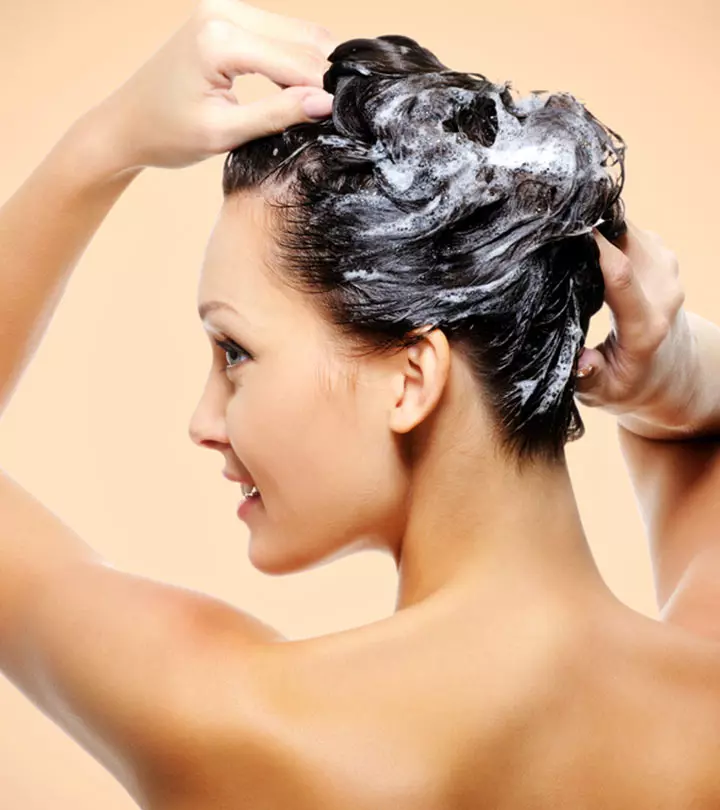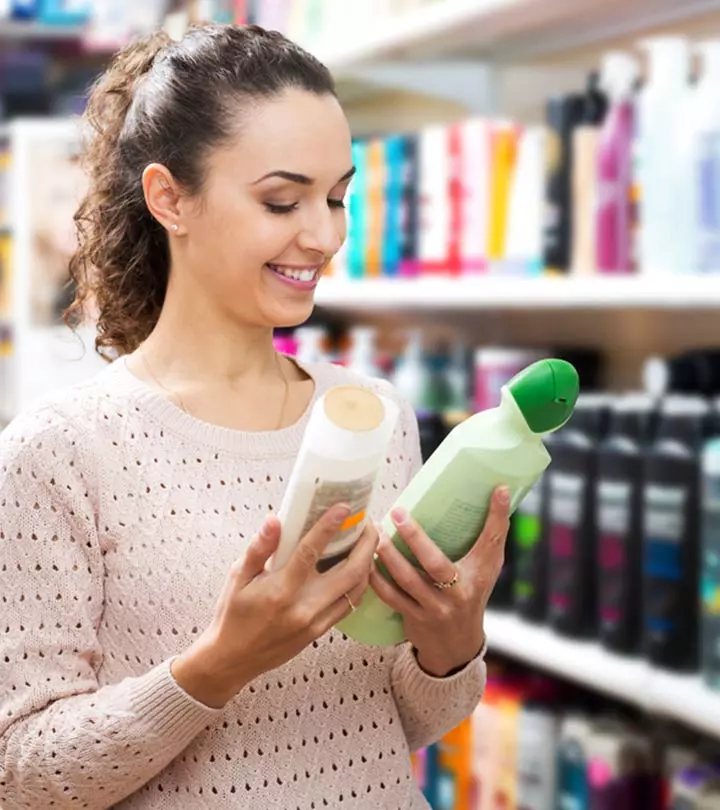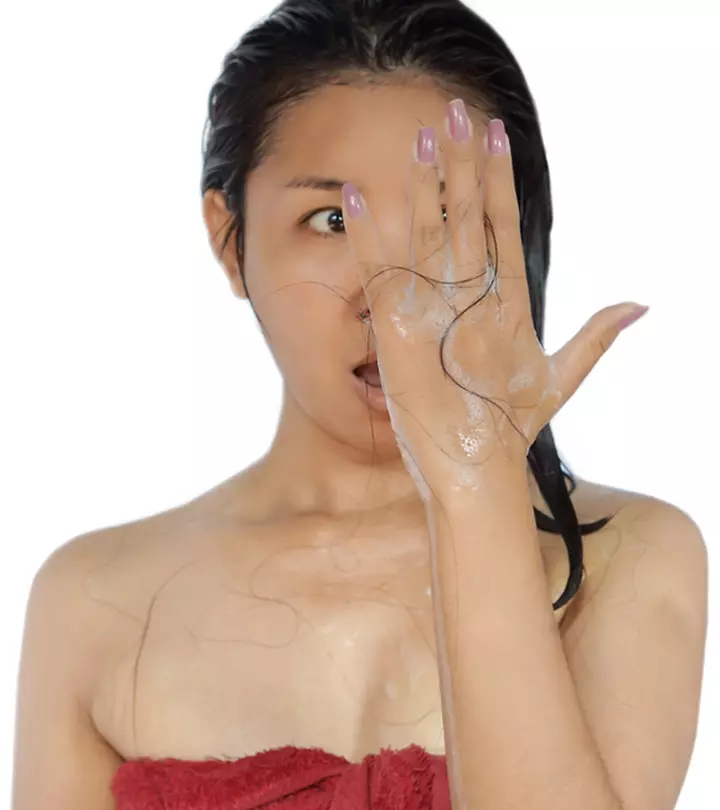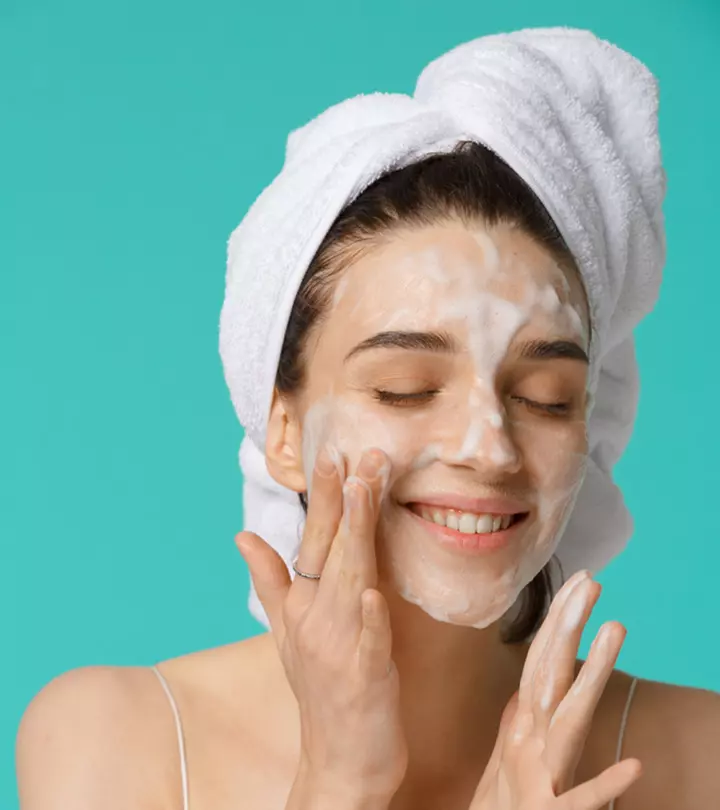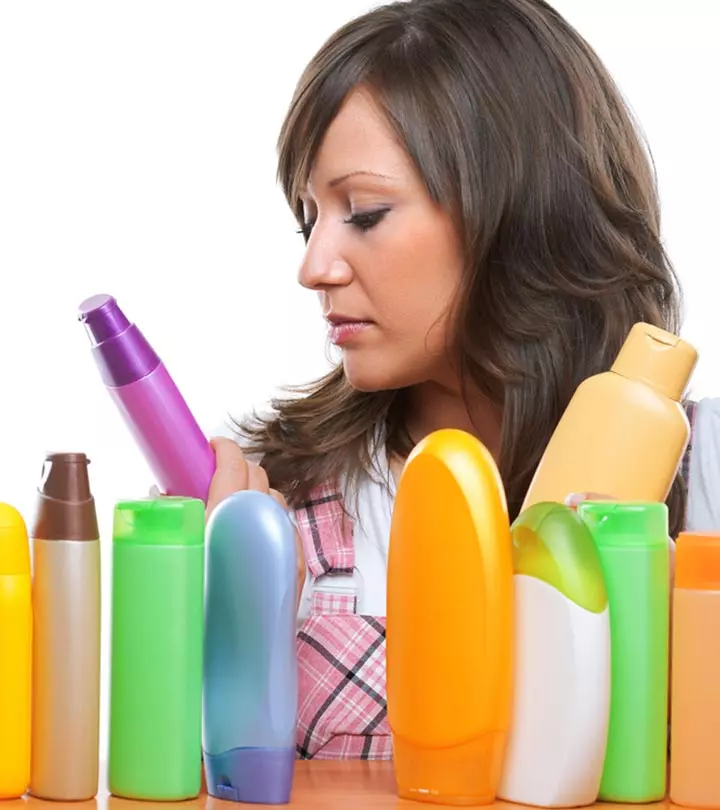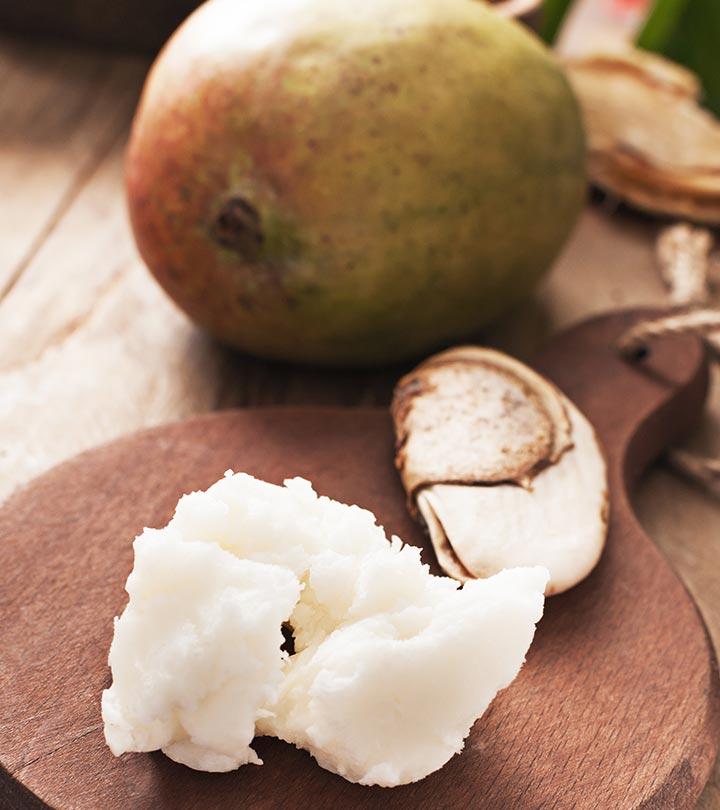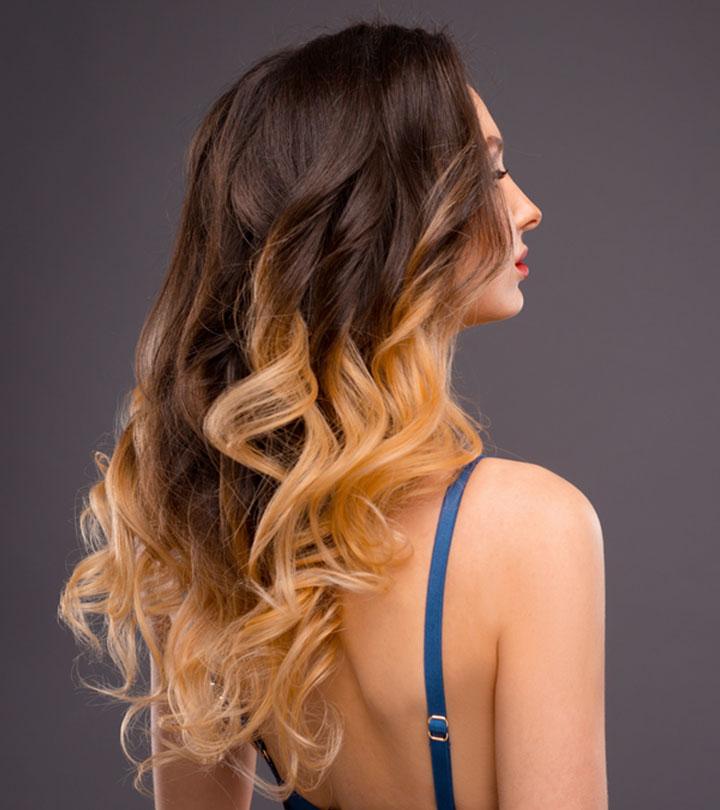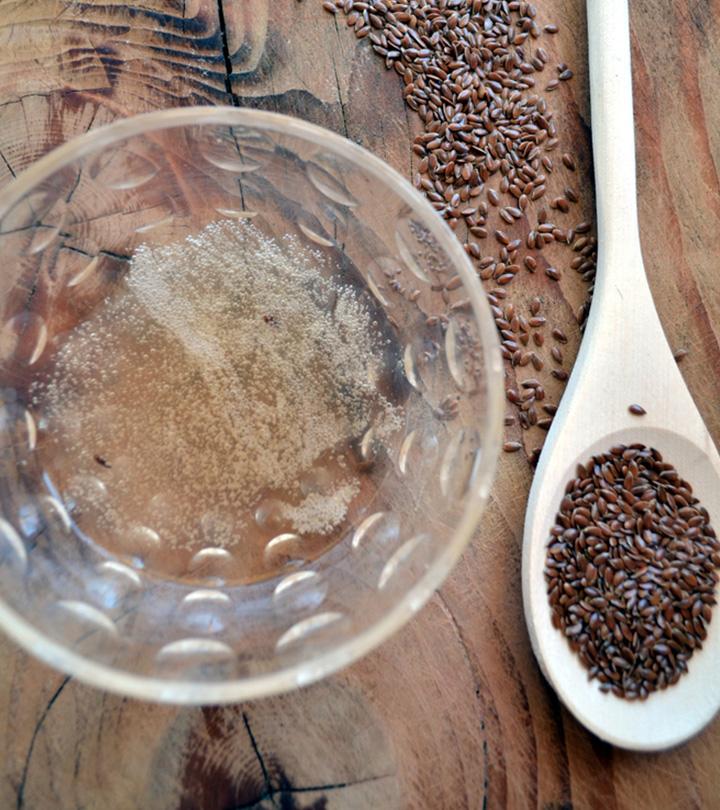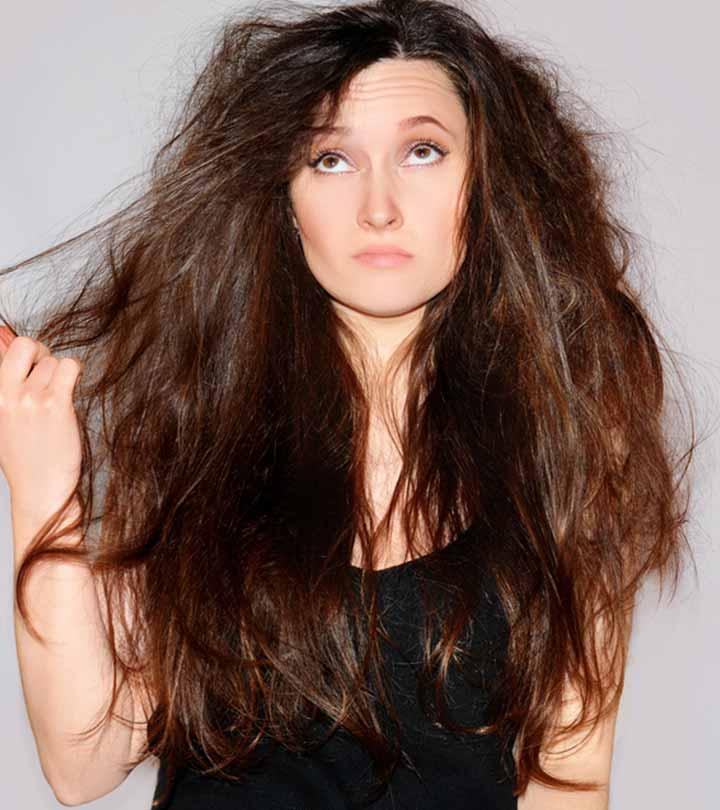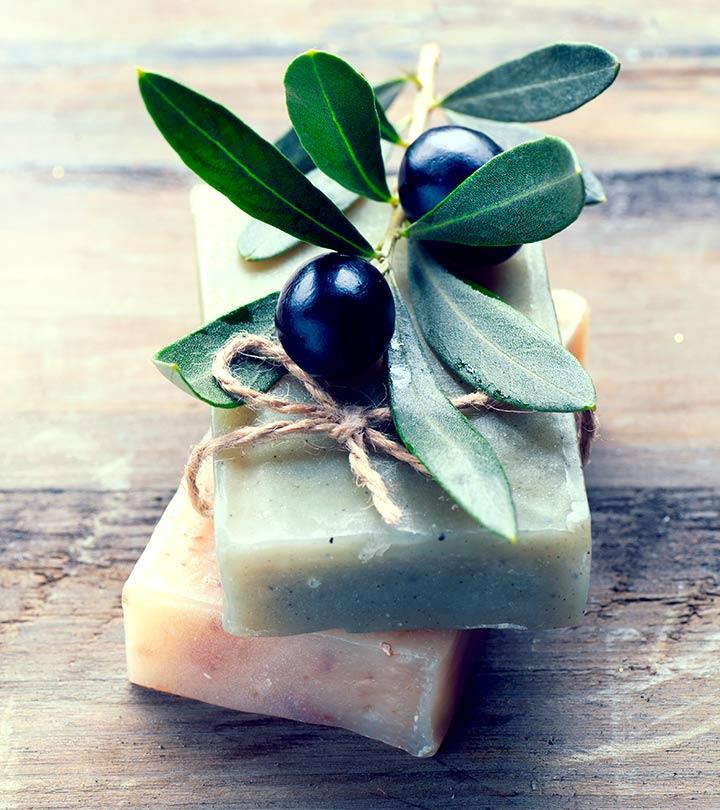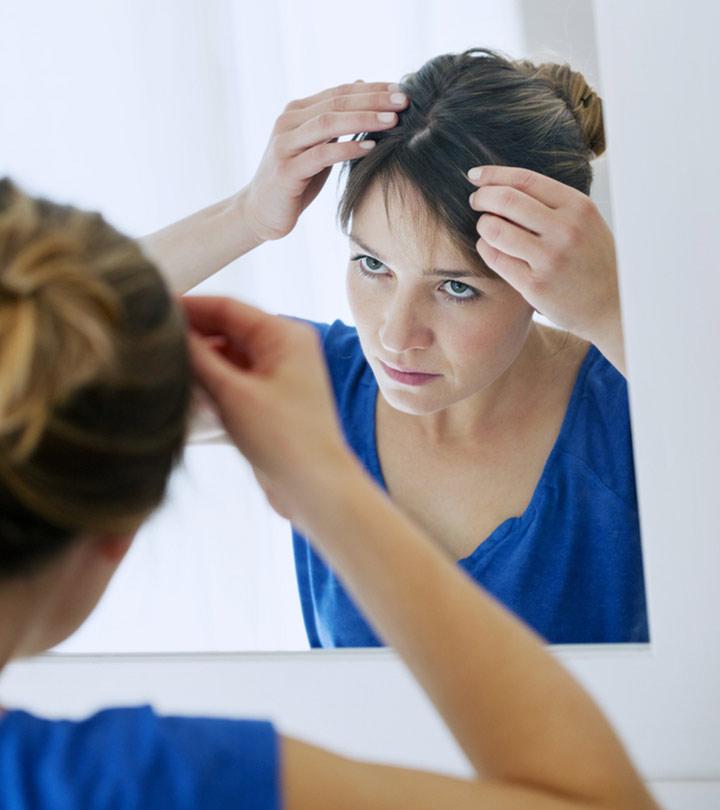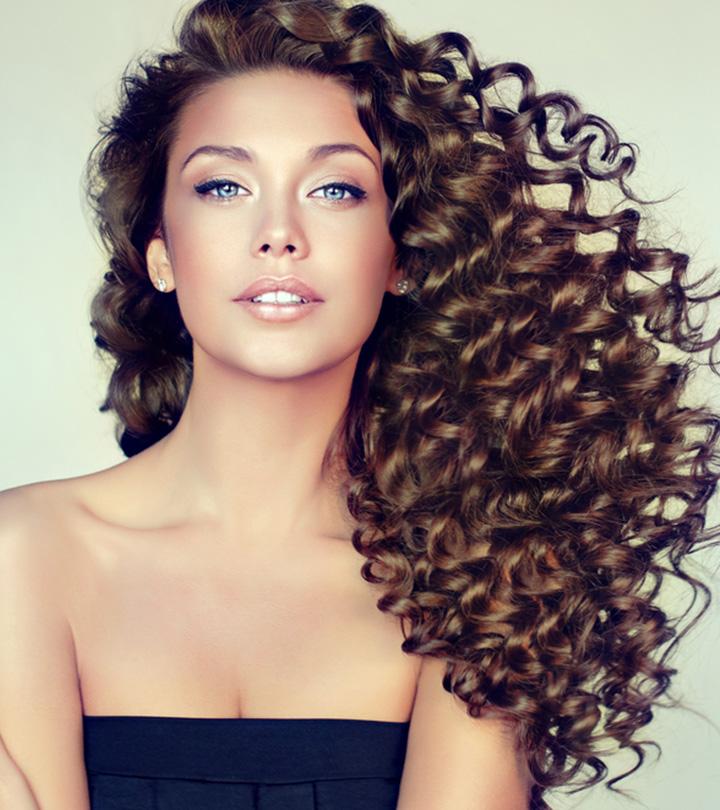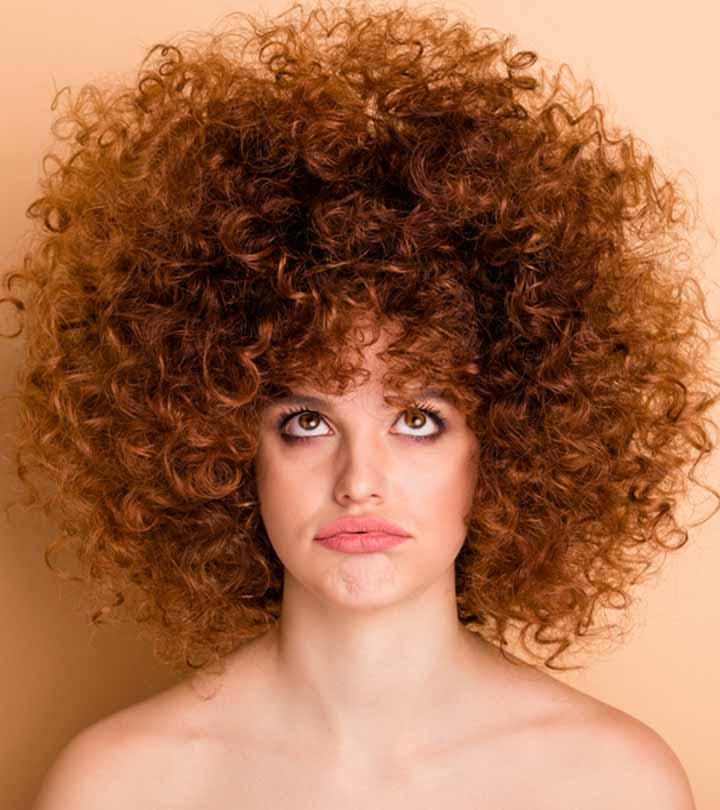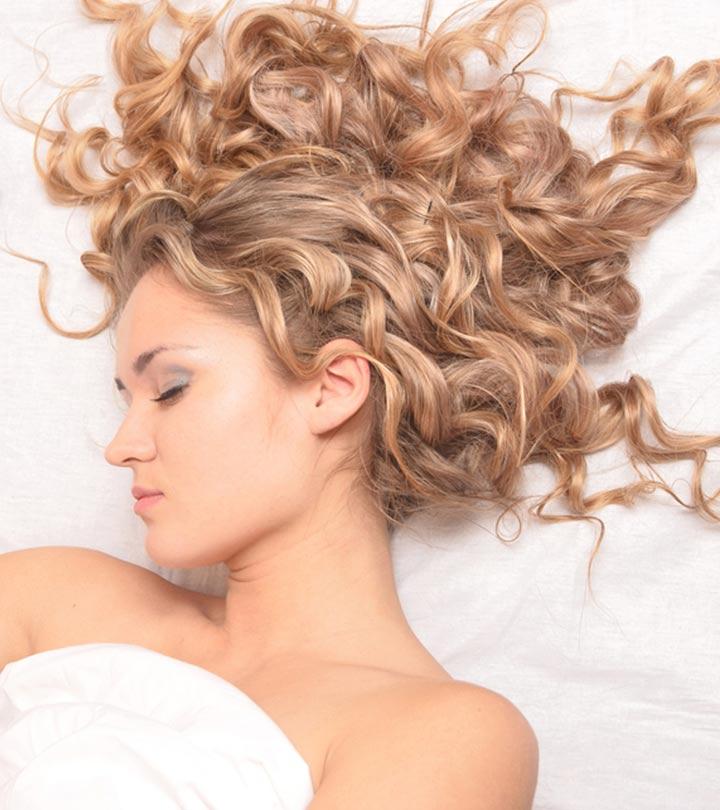Sulfates In Shampoo: Are They Bad For Your Hair Or Not?
Cleanse or Catastrophe? Unmask the sulfate myth to get clean, healthy hair growth.

Image: Shutterstock
Sulfates are common in almost all hair care products. You will commonly find sulfates in shampoos as they are the foaming agents that help cleanse your scalp and hair. Sulfates have been controversial for years. Even today, most people consider it bad for their skin and scalp and prefer “sulfate-free” products as they are thought to be gentler. However, have you ever thought about why sulfates are demonized in the beauty industry?
 Trivia
TriviaThis also makes us wonder if it is possible to cleanse our hair and scalp without the suds. This article explores the reality of sulfates, their effects, and potential risks. Read on.
In This Article
What Are Sulfates And What Do They Do?
Sulfates are cleansing agents or surfactants found in products like shampoos and detergents. When mixed with water, sulfates quickly form foams.
Surfactants like sulfates help reduce surface tension between your skin and the shampoo. This allows the active ingredients in the shampoo to do their work effectively. In other words, sulfates make your shampoo more effective.
All sulfates have different intensities and may or may not irritate the scalp. The most common sulfates used in hair care products are:
- Sodium Lauryl Sulfate
- Sodium Laureth Sulfate
- Ammonium Lauryl Sulfate
- Ammonium Laureth Sulfate
The laureth sulfates are milder than the lauryl sulfates, and the ammonium sulfates are much gentler than their sodium counterparts.
The question is, are sulfates really bad for your scalp and hair? Let’s find out in the next section.
Are Sulfates Bad For Your Hair?
They are both good and bad for your hair, depending on your hair type, scalp condition, the concentration of sulfates, and the usage frequency.
Sulfates may damage your scalp and hair in the following circumstances:
- Regular And Excessive Usage: Studies indicate that daily shampooing with products containing sodium dodecyl sulfate (another name of SLS) may cause protein (keratin) loss, leading to dryness and split ends (1).
- Induce Contact Dermatitis: High concentration (3%) of sulfates, especially SLS, can cause moisture loss from the skin, leading to irritant contact dermatitis (2). Sulfates can irritate your scalp if you have conditions like erythema, eczema, and psoriasis.
- May Cause Hair Loss: Sulfates are not directly linked to hair loss. However, it may irritate a sensitive scalp, cause protein loss, weaken the hair, and cause hair fall and loss.
- Cause Dryness And Brittle Hair: Excessive use of products containing sulfates can strip the natural oils and make the hair dry, frizzy, and brittle. Among all hair types, natural hair is more vulnerable to sulfates.
- May Strip Your Hair Color: If you have dyed hair, avoid sulfates as they can strip the hair color. We already have enough reasons to hate sulfates. However, some people with specific hair types may benefit from sulfates. For instance,
- Sulfates Are Excellent Clarifying Agents: If you have an oily scalp and fine hair, a good clarifying shampoo with sulfates can efficiently provide thorough cleansing and wash out all dirt, grime, and oils. It removes product buildup to keep your scalp healthy.
- Sulfates May Help If You Have Dandruff: The fungus Malassezia feeds on the excess sebum and lipids on your scalp. Using sulfates can help clean the oil, minimizing the effect of the fungus.
However, in both cases, moderation is key. Sulfate shampoos should be used not more than once or twice a week. However, it is also possible to clean your hair without sulfates.
Sulfate-Free Shampoos: Are They Better For Your Hair?
Yes, if you have a dry and sensitive scalp and natural, kinky, and damaged hair. Sulfate-free does not mean surfactant-free products. Non-sulfate shampoos usually contain non-ionic surfactants like coco glucoside (extracted from coconut oil and fruit sugars) and decyl glucoside. Both are ECOCERT approved and completely biodegradable.
A few sulfate-free shampoos may also contain lauryl glucoside and disodium laureth sulfosuccinate (a gentle anionic surfactant). These are great alternatives to SLS and SLES and suitable for sensitive skin. Other than these, sulfate-free shampoos contain hydrating ingredients and cleanse the scalp without irritating it or stripping the natural oils and keep the hair moisturized and soft.
However, with a sulfate-free shampoo, you may have to work hard and massage the scalp thoroughly to clean it. Naturally, derived surfactants are mild, often do not lather well, and are not as efficient as SLS. However, they are great for dry, damaged, and natural hair.
If you have fine hair and oily scalp, you may use shampoos with sulfates occasionally. If you want to go low-sulfate, switch to products with milder sulfates and go gentle with them.
 Did You Know?
Did You Know?However, you should switch to natural options if your skin does not respond well to sulfates.
Who Should Avoid Sulfates?
Avoid using sulfates if:
- You are allergic to them.
- You have a sensitive scalp.
- You have rosacea, eczema, contact dermatitis, and related skin issues.
- You have natural (kinky and coily) hair.
- Your hair is dry and damaged.
- You have chemically processed and color-treated hair.
- Your hair is frizzy.
In a community-based study with 321 women of various racial backgrounds, including Black, Latina, Vietnamese, Mixed Race, and White, it was found that parabens and sulfates were mentioned by Black, Latina, Vietnamese, and White women as ingredients they avoid. Around 50% of Black, 42.3% of White, and 53% of Mixed Race women reported avoiding these, while only about 14-15% of Latina and Vietnamese women did.
When choosing a sulfate-free shampoo, keep the following things in mind.
How To Choose The Best Sulfate-Free Shampoo
Look for the following surfactants before buying:
- Coco glucoside
- Decyl glucoside
- Sodium cocoyl glutamate
- Sodium cocoamphoacetate
Also, pick a product that does not contain:
- Artificial fragrances
- Artificial preservatives like paraben and PEG
- Synthetic colors
- Alcohol and propylene glycol
- Essential oils
Sulfates in shampoos are common and used mainly due to their cleansing and clarifying properties. However, excessive sulfates or using them in high concentrations may dry out the hair and irritate the sensitive scalp. Therefore, it is best to avoid sulfates if you have a sensitive scalp and your skin cannot tolerate sulfates. On the other hand, sulfates are excellent for oily scalp and help remove product residue from the scalp. If you are using shampoos containing sulfates without any issues, there is no need to discontinue them. Just ensure that you are using them in moderation.
Frequently Asked Questions
Is it okay to use sulfate-free shampoo every day?
Yes. If you need to wash your hair every day, using a sulfate-free shampoo is a good choice as it is formulated to be gentler on your hair and help retain moisture.
Does sulfate-free shampoo cause dry scalp?
No. Sulfate-free shampoos are gentle on your scalp and do not dry out your hair and scalp like sulfate-based hair products do.
Does sulfate-free shampoo reduce dandruff?
Most sulfate-free shampoos do help in reducing dandruff as they are gentle on the scalp, retain moisture, and prevent a dry scalp environment that can increase dandruff issues.
Key Takeaways
- As the foaming agents in shampoos and detergents, sulfates assist in cleansing your hair and scalp.
- They may cause dryness, brittle hair, and breakage in high concentrations and with excessive use.
- However, sulfate-free shampoos may be a good option if you have a dry and sensitive scalp or kinky and damaged hair.
Watch this informative video to understand the pros and cons of the commercially used ingredient sodium lauryl sulfate, and make informed choices for your skincare and haircare routines. Click play to know how dafe it is and more!
References
Articles on StyleCraze are backed by verified information from peer-reviewed and academic research papers, reputed organizations, research institutions, and medical associations to ensure accuracy and relevance. Read our editorial policy to learn more.
- Hair protein removal by sodium dodecyl sulfate,
https://pubmed.ncbi.nlm.nih.gov/15698750/ - Sodium lauryl sulfate (SLS) induced irritant contact dermatitis: a correlation study between ceramides and in vivo parameters of irritation,
https://pubmed.ncbi.nlm.nih.gov/8917825/
Read full bio of Dr. Somodyuti Chandra
Read full bio of Anjali Sayee
Read full bio of Monomita Chakraborty





